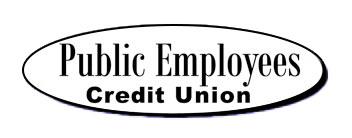Tech Support Scams – These are a common type of computer fraud. Tech support scams get people to pay for fake computer help or steal their personal information and are convincing.
Getting a virus on your computer can be terrifying. You’re not sure whether your files and personal information are safe. Scammers prey on that fear with one of the most common types of fraud: a technical support scam.
This scam typically begins when a message similar to this one pops up on your computer: “You have a virus! Call the number below to protect your identity before it’s too late!” The scammers are counting on your panic in this moment. Your immediate thought is to safeguard your personal information. Do not give them access to your computer by dialing that phone number.
If you dial that number, the person on the other end may:
-
Try to sell you software or services that you don’t need, that don’t work, or that just plain don’t exist.
-
Ask for remote access to “run a diagnostic test” or otherwise fix your problems; this can give them access to all the files stored on your computer.
-
Direct you to install software to find or fix the virus. This software is likely dangerous and can help steal your personal information such as passwords for websites.
One of the biggest red flags: Your “tech associate” may require payment for any of these “services” via gift card, cash reload card, or wire transfer because those can’t be stopped after the fraud is discovered.
Real antivirus and tech support companies do not operate in this manner. Antivirus software is designed to quarantine viruses on its own and shouldn’t require a phone call. You should never give access to your computer to someone you don’t trust.
Companies like Microsoft don’t call and ask for access to your computer. If you get a call like that, it’s a scam.
Real companies also won’t ask for your account passwords. Only scammers do this.
Tech support scammers try to convince you that they are legitimate. They will pretend to know about a problem on your computer. They will ask you to open normal files that look alarming to make you think you need help.
If you do need computer help, go directly to a person, business, or website you know you can trust. General online searches are risky because you might pull up another scam.
If you see a virus message like the one above, odds are your computer is fine. If you are worried, you should contact your regular tech support directly. NEVER call the number in the message or click on any link. Always report any attempted scams at https:/reportfraud.ftc.gov/#/assistant to the Federal Trade Commission.
If you know you were scammed, here’s what to do:
Update your computer’s security software, scan your computer, and delete anything it identifies as a problem. Restart your computer to be sure the changes take effect. Going forward, download security updates as soon as they are available. Most operating systems have a setting to download and install security updates automatically. This is highly recommended. Also, install updates for your other software including apps.
If the scammer got your password for a financial account, or a site such as Amazon, change the password immediately. Contact the company directly to make sure no one has accessed your account.
If you were scammed, report your experience at https://www.ftc.gov/complaint. You are not alone and reporting these scams helps law enforcement go after the people behind these tech support scams.
Awareness is the key to preventing fraud. Read about more scams and sign up for free scam alerts from the Federal Trade Commission at https://www.ftc.gov/scams.
|



